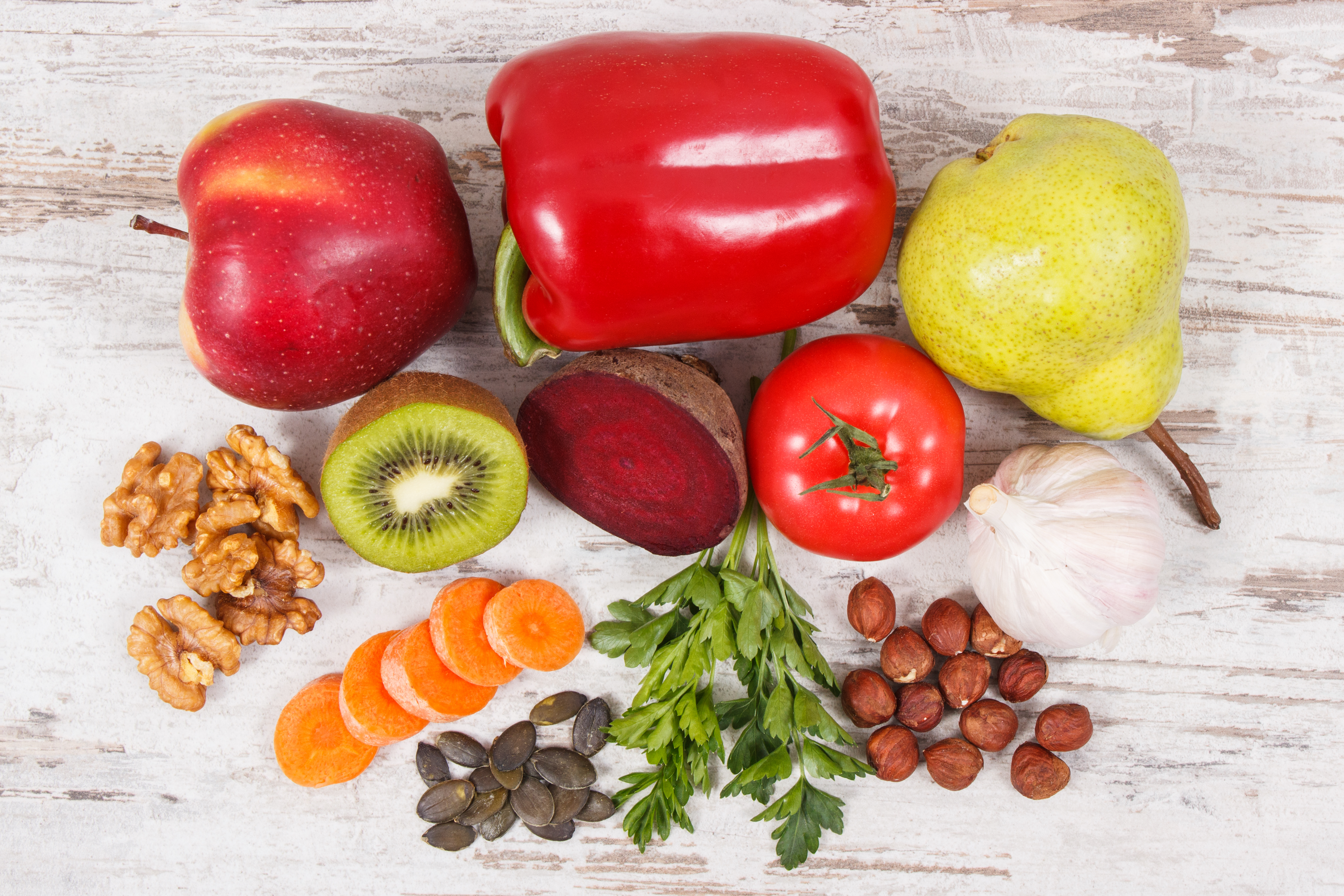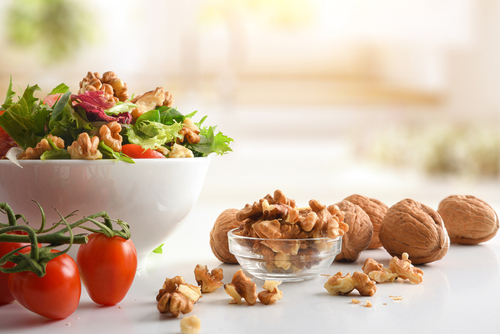What is the Gout Diet?
One of the questions I receive a lot as a Registered Dietitian is what someone should eat if they have gout. In addition, many people call into Seattle Sutton’s Healthy Eating wondering if our meal plans are appropriate for gout. An overall healthy diet is good for gout, but there is some specific nutrition advice that is important to know to get the best relief.
Gout is a disorder that causes sudden and recurring attacks of painful arthritis. It is caused by abnormal metabolism of purines that leads to inflamed joints. The uric acid that builds up in the body can form needle-like crystals in soft tissues and joints. If your body cannot get rid of the uric acid, it can build up and reach levels that cause problems. Common places people experience pain include the big toe, ankles, knees, and feet. Foods high in purines are broken down into uric acid, which can build up in the system leading to pain and discomfort.

More than 1% of adults in the United States are affected by gout and it is the most common inflammatory arthritis in men. An estimated 8 million Americans experience gout attacks. The likelihood of dealing with gout increases with age and is more common in those who also have metabolic syndrome, high blood pressure, diabetes, coronary heart disease, and obesity.
Certain lifestyle factors that increase your risk of being diagnosed with gout. Addressing these behaviors can improve your gout if you have already been diagnosed or reduce your risk if you are at risk. Risk factors include high alcohol intake, taking certain high blood pressure medications, obesity, and having a diet high in purines and/or fructose.
With the popularity of the ketogenic diet recently, it is also important to note that being in a state of ketosis can also trigger high levels of uric acid, which can lead to a gout attack.
Many people are not familiar with foods that are high in purines, so you may be wondering if you have a high purine diet. Foods high in purines, to watch out for include:
- Alcoholic beverages (all types)
- Seafood and shellfish (including anchovies, sardines, mussels, codfish, scallops, trout, and haddock)
- Beef
- Pork
- Lamb
It has been found that following a traditional western diet with an increased intake of red meat has been associated with a marked increase in serum uric acid levels. Meats with particularly high levels of purines include bacon, veal, venison, and organ meats like liver.
The DASH diet – a low sodium diet that emphasizes fruits and vegetables over red meat and processed foods – is recommended for people with gout. (Read our blog, which discusses the DASH diet here.) The Mediterranean diet may also help; this diet focuses on fruits, vegetables, whole grains, and healthy fats. (Read how SSHE meals meet the Mediterranean diet principles here!) Some vegetables are high in purines but studies have shown that the benefits of a veggie-packed diet outweigh the risks. High-purine vegetables, like spinach and asparagus, have not been shown to increase the risk of gout.

When someone suffers a gout attack, they often have severe pain, more so at night. Their joints will swell and the skin turns warm, red-purplish, and shiny. Typically, an attack will subside in a few days; however, repeated attacks can lead to permanent joint damage and frequent medical care.
The good news is that gout can be controlled with lifestyle changes and reducing the number of purines that you take in with your diet. Read on for tips to help lower the burden of gout and improve your overall health.
1. Gradual Weight Loss. If you are overweight or obese, losing some of the excess weight can help naturally lower your uric acid levels. Most research shows a steady weight loss of even 10% of your body weight can lead to drastic improvements in your health. Focus on small changes that you can envision yourself doing forever. When you reach one goal, move on to another. Reducing your calories and losing weight – even without a purine-restricted diet – lowers uric acid levels and reduce the number of gout attacks.
2. Drink Plenty of Fluids. By increasing your fluid intake, you may help to flush uric acid out of your system. Dehydration can be a trigger for a flare-up. Focus on unsweetened beverages and aim to drink half of your body weight in ounces every day, unless your medical team has placed you on a fluid restriction. Great choices include water, unsweetened tea or coffee, milk, and tart cherry juice.

3. Avoid Alcohol. Beer and liquor readily convert to uric acid as well as slow down its elimination from the body. Your best bet is to cut alcohol completely out if you suffer from gout. Studies have shown mixed results about whether wine is okay in moderation.
4. Dump the Excess Sugar. Most sodas and Hi-C-type drinks are sweetened with fructose or high fructose corn syrup. Drinking beverages with these sweeteners have been linked to gout. Sugary drinks are also a significant source of empty calories, which can make weight management a struggle. Look for unsweetened drinks and if you miss the fizz of your soda, try seltzer water in its place. One study found that drinking two servings of a sugar-sweetened beverages, usually containing fructose, increased the risk of developing gout by 85%!
5. Cut Back on Red Meat. Red meat, particularly organ meats and processed meats can significantly increase your risk for gout. To avoid a gouty attack, it is best to limit your intake of these foods. Focus on other sources of protein low in purines such as eggs, nuts, beans, chicken, crab, and salmon. If you do eat red meat, limit the portion size to about the size of a deck of cards.
6. Snack on Oranges, Cherries, and Walnuts. Regularly eating fruits like oranges and cherries has been reported to reduce the inflammation caused by uric acid. Vitamin C may help with lowering uric acid levels. Omega-3-fatty acids, such as those found in walnuts and fatty fish, are also thought to have an anti-inflammatory effect. These foods should be included a couple of times a week.

7. Try Seattle Sutton’s Healthy Eating. Our healthy and convenient meal plans make managing your gout easy. No planning, prepping, shopping, or cooking required. Our meal plans limit many foods that are high in purines, help you reach and maintain a healthy weight, limit added sugars, and include a variety of anti-inflammatory foods. Your gout relief is just a phone call and a bite away!
By following the above recommendations, you can help limit the buildup of uric acid and increase its elimination, which could lead to a more pain-free life. You may still need to take gout medications but by taking control of your lifestyle habits and improving your diet, you may experience other health benefits as well. Don’t let gout slow you down, get back to enjoying your life and doing the things you love!
Check out our Gout-approved menus today!

